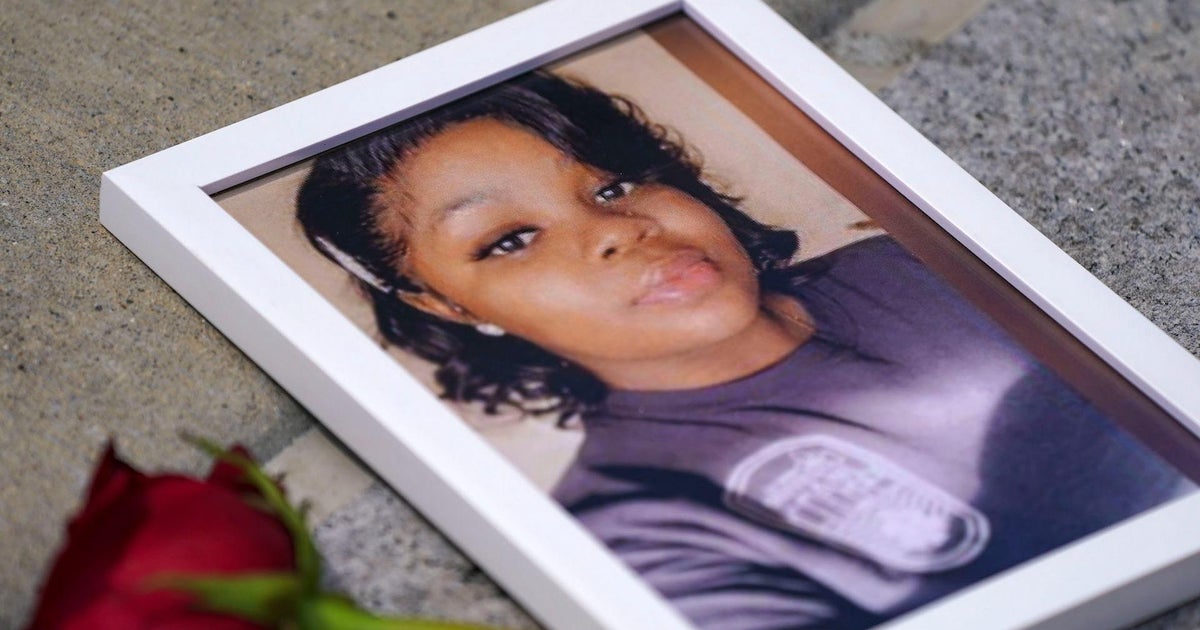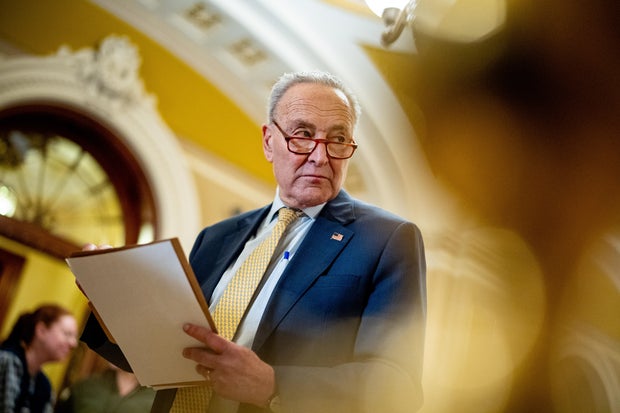CBS News
Julian Assange, WikiLeaks founder, to plead guilty to violating the Espionage Act

Washington — WikiLeaks founder Julian Assange has agreed to plead guilty to violating the Espionage Act and is expected to appear in a U.S. courtroom on the Northern Mariana Islands in the coming days, court records revealed Monday.
The guilty plea, which is to be finalized Wednesday, will resolve Assange’s outstanding legal matters with the U.S. government. Justice Department prosecutors recommended a prison sentence of 62 months in custody as part of the plea agreement, the records revealed, which is on the high end for a single-count violation. Assange would not spend any time in U.S. custody because, under the plea agreement, he’ll receive credit for the approximately five years he has spent in a U.K. prison fighting extradition to the U.S.
Assange, an Australian national, was indicted in 2019 by a federal grand jury in Virginia with more than a dozen charges that alleged he illegally obtained and disseminated classified information about America’s wars in Afghanistan and Iraq on his WikiLeaks site. Prosecutors at the time accused him of recruiting individuals to “hack into computers and/or illegally obtain and disclose classified information.”
He is set to plead guilty to a charge of conspiracy to obtain and disclose national defense information.
One of his best-known recruits, U.S. Army intelligence analyst Chelsea Manning, was convicted of the 2010 leak of hundreds of thousands of sensitive military records to WikiLeaks in what officials said was one the largest disclosures of secret government records in history. Manning was sentenced to 35 years in prison and in 2017, former President Barack Obama commuted her sentence.
Assange was accused of working with Manning to figure out the password on a Defense Department computer system that stored the sensitive records about the Iraq and Afghanistan wars as well as hundreds of Guantanamo Bay detainee assessment briefs.
Federal prosecutors also accused Assange of publishing the names of “persons throughout the world who provided information to the U.S. government in circumstances in which they could reasonably expect that their identities would be kept confidential.”
Assange previously denied all wrongdoing. He has been in British custody since 2019 and launched a yearslong legal effort to resist extradition to the U.S. to face federal charges. The expected guilty plea brings an end to the intercontinental court fight.
In May, the WikiLeaks founder won his bid to appeal his extradition to the U.S. on espionage charges after a British court asked the U.S. government earlier this year to assure that Assange would be granted free speech protections under the U.S. Constitution and that he would not be given the death penalty if convicted on espionage charges.
President Biden said in April he was “considering” a request from Australia to allow Assange to return to his native country, which called for the U.S. to drop the case against him.
Assange has faced legal troubles for more than a decade, beginning in 2010 when a Swedish prosecutor issued an arrest warrant related to rape and sexual assault allegations by two women, which Assange denied. As he faced extradition to Sweden, he sought political asylum at the Ecuadorian Embassy in London, where he lived for seven years until he was evicted in 2019.
Swedish prosecutors dropped their investigation into Assange in 2017 and an international arrest warrant against him was withdrawn, but he was still wanted by British police for skipping bail when he entered the embassy.
By early 2019, Ecuador became irritated with its London house guest, accusing him of smearing his feces on the walls and attacking its guards.
“He exhausted our patience and pushed our tolerance to the limit,” Lenin Moreno, who was Ecuador’s president at the time, said. Moreno accused Assange of being “an informational terrorist” by selectively releasing information “according to his ideological commitments.”
At the request of the U.S. government, British police arrested Assange on April 11, 2019, at the embassy after Ecuador ended his asylum. By then, he was facing charges in the U.S. related to the 2010 leak.
WikiLeaks was a key player in the 2016 presidential election, publishing thousands of emails from Hillary Clinton’s campaign and the Democratic National Committee that had been stolen by Russian government hackers. WikiLeaks and Assange are mentioned hundreds of times in special counsel Robert Mueller’s 448-page report on Russian interference in the 2016 election.
Priscilla Saldana contributed reporting.
CBS News
Senate passes $895 billion defense bill with controversial gender-affirming care restriction

Washington — The Senate approved the mammoth $895 billion National Defense Authorization Act on Wednesday, despite concern from some Democrats over a controversial policy restricting gender-affirming care for children of servicemembers.
In a 85 to 14 vote, the Senate approved the legislation, which the House passed last week. Eleven Democrats and three Republicans voted against it in the upper chamber. The bill now heads to President Biden’s desk for his signature.
The 1,800 page national security legislation to authorize funding for the Defense Department for fiscal year 2025. But the bill includes a handful of controversial policies, like the gender-affirming care restriction, and lost support from the majority of Democrats in the House.
The Democratic-controlled Senate pushed forward with the measure nonetheless. Senate Majority Leader Chuck Schumer noted that while the NDAA “isn’t perfect,” it still “includes some very good things that Democrats fought for” — citing provisions aimed at standing up against the Chinese Communist Party, boosting the use of artificial intelligence for national defense and expanding domestic tech innovation.
“Congress has passed the NDAA on a bipartisan basis for over six straight decades, and this year will be no different,” Schumer said ahead of the vote on Wednesday. “We’re passing the NDAA and that’s a very good thing.”
Andrew Harnik / Getty Images
Sen. Ed Markey, a Massachusetts Democrat, derided the gender-affirming care restriction earlier this week, calling it “the product of a nationwide campaign against trans rights” and arguing that the legislation’s approval would mark “the first anti-LGBTQ law passed by Congress in decades.”
Still, the outcome of the vote was all but guaranteed after the Senate advanced the measure on Monday in a 83-12 procedural vote.
Sen. Roger Wicker of Mississippi, the ranking Republican on the Senate Armed Services Committee, celebrated the NDAA’s “immense accomplishments,” including a 14.5% pay raise for junior service members and investments in recruitment capabilities. But he said Congress “missed an opportunity to strengthen the president-elect’s hand as he takes office in a precarious world situation.”
Wicker outlined that the Armed Services Committee proposed $25 billion for modernization programs, including for missile defense, ship building and counter-drone technology, saying “this should have been part of the bill today.”
Sen. Jack Reed, a Rhode Island Democrat who chairs the Armed Services Committee, called the legislation a “strong, forward looking bill that we can all be proud of.” But he said he “strongly” disagrees with the inclusion of the gender-affirming care provision, calling it a “misguided provision.”
“I share many of my colleagues’ frustrations that the bill includes a provision that would prohibit gender-affirming health care for minors under certain circumstances,” Reed noted, adding that he voted against the provision in committee. “We will continue to work to ensure the health care rights of all military personnel and their dependents.”
CBS News
Trump wants Herschel Walker to be U.S. ambassador to the Bahamas

Watch CBS News
Be the first to know
Get browser notifications for breaking news, live events, and exclusive reporting.
CBS News
CDC confirms first severe bird flu case in the U.S.

A person in Louisiana has the first severe illness caused by bird flu in the U.S., the Centers for Disease Control and Prevention announced Wednesday.
Officials determined the patient had exposure to sick and dead birds in backyard flocks, though an investigation into the source of the infection in the state is ongoing. This is also the first case of H5N1 bird flu in the U.S. that has been linked to exposure to a backyard flock, a news release noted. Officials have not shared details on the patient’s symptoms.
The case was first confirmed by health officials Friday, adding to the total of 61 reported human cases of H5 bird flu reported in the United States. Another severe case of H5N1 has been reported in a teen in British Columbia.
A release from the Louisiana Department of Health Wednesday added the patient, a resident of southwestern Louisiana, is currently hospitalized. Until now, the H5N1 cases in the U.S. have been mild, including conjunctivitis and upper respiratory symptoms.
“While the current public health risk for the general public is low, people who work with birds, poultry or cows, or have recreational exposure to them, are at higher risk,” the state’s health department added.
Mild illnesses have been seen in dairy and poultry workers who had close contact with infected animals. In two cases, no known source of the illnesses have been identified, which has worried infectious disease experts about the possibility of human-to-human transmission, which could trigger a pandemic.








